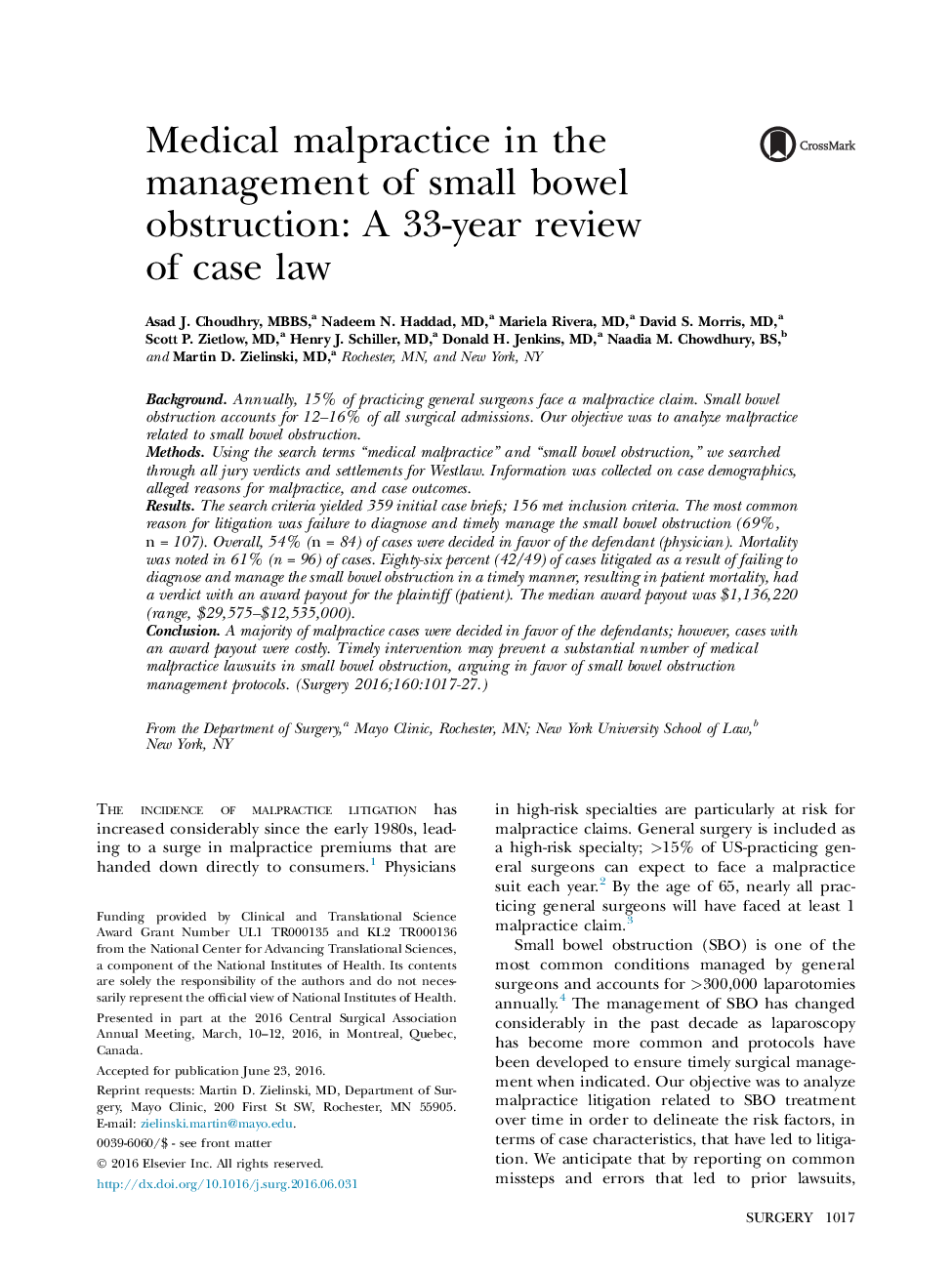| Article ID | Journal | Published Year | Pages | File Type |
|---|---|---|---|---|
| 4306372 | Surgery | 2016 | 11 Pages |
BackgroundAnnually, 15% of practicing general surgeons face a malpractice claim. Small bowel obstruction accounts for 12–16% of all surgical admissions. Our objective was to analyze malpractice related to small bowel obstruction.MethodsUsing the search terms “medical malpractice” and “small bowel obstruction,” we searched through all jury verdicts and settlements for Westlaw. Information was collected on case demographics, alleged reasons for malpractice, and case outcomes.ResultsThe search criteria yielded 359 initial case briefs; 156 met inclusion criteria. The most common reason for litigation was failure to diagnose and timely manage the small bowel obstruction (69%, n = 107). Overall, 54% (n = 84) of cases were decided in favor of the defendant (physician). Mortality was noted in 61% (n = 96) of cases. Eighty-six percent (42/49) of cases litigated as a result of failing to diagnose and manage the small bowel obstruction in a timely manner, resulting in patient mortality, had a verdict with an award payout for the plaintiff (patient). The median award payout was $1,136,220 (range, $29,575–$12,535,000).ConclusionA majority of malpractice cases were decided in favor of the defendants; however, cases with an award payout were costly. Timely intervention may prevent a substantial number of medical malpractice lawsuits in small bowel obstruction, arguing in favor of small bowel obstruction management protocols.
